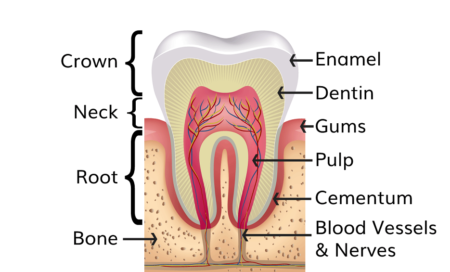CPSA submission to Select Committee inquiryDrilling down into the problem with public dental healthcare
Imagine that you’re due for a dental check-up but when you call to book an appointment, you’re told it will be a long wait before you can make an appointment.
Many months later you chip a tooth so you call again and get told that that’s still not urgent enough, you’ll have to wait some more before you can make an appointment.
More months go by and now you can’t eat or talk without being in pain. This time when you call, you’re finally offered an appointment.
This is the experience of many people trying to use the public dental system. They’re told their minor problems aren’t serious enough to get to the top of the waitlist and by the time they receive treatment, they need to have much more extensive and painful procedures.
In fact, as of June 20 there are 78,439 people waiting for public dental treatment or assessment in NSW.
If the figures from 2021-22 are anything to go by, these people will be left waiting a median of 433 days before being offered an appointment.
When they’re finally offered an appointment they might not even be able to get to the clinic since huge areas like the Far West Local Health District, that covers almost 200,000 square kilometres, only have one permanent public clinic and there is no travel assistance scheme to help with dental care.
The Senate Inquiry into the Provision of and Access to Dental Services in Australia was set up to investigate all of this and more to make the dental system work better for the Australian public.
CPSA has made a submission to the inquiry outlining many of the issues members have raised with us after trying to access dental care.
Ultimately CPSA has recommended that Medicare be expanded to include dental care. Poor oral health can have huge impacts on overall wellbeing and there’s no reason the mouth should be treated differently to the rest of the body.
In the meantime, other steps have been suggested including:
- Greatly increased funding for public dental care
- More public clinics, especially in rural and remote areas
- A travel assistance scheme to make sure location and travel costs aren’t a barrier to accessing care
- That the public dental system focus more on preventative care to stop problems before they happen
- Requiring data on public dental services, including the length of waiting lists and expected wait times, to be publicly available.
The inquiry is ongoing, but the committee was due to present an interim report by June 20 and you can expect their final report on November 28.
Drilling down into the problem with public dental healthcare
Imagine that you’re due for a dental check-up but when you call to book an appointment, you’re told it will be a long wait before you can make an appointment.
Many months later you chip a tooth so you call again and get told that that’s still not urgent enough, you’ll have to wait some more before you can make an appointment.
More months go by and now you can’t eat or talk without being in pain. This time when you call, you’re finally offered an appointment.
This is the experience of many people trying to use the public dental system. They’re told their minor problems aren’t serious enough to get to the top of the waitlist and by the time they receive treatment, they need to have much more extensive and painful procedures.
In fact, as of June 20 there are 78,439 people waiting for public dental treatment or assessment in NSW.
If the figures from 2021-22 are anything to go by, these people will be left waiting a median of 433 days before being offered an appointment.
When they’re finally offered an appointment they might not even be able to get to the clinic since huge areas like the Far West Local Health District, that covers almost 200,000 square kilometres, only have one permanent public clinic and there is no travel assistance scheme to help with dental care.
The Senate Inquiry into the Provision of and Access to Dental Services in Australia was set up to investigate all of this and more to make the dental system work better for the Australian public.
CPSA has made a submission to the inquiry outlining many of the issues members have raised with us after trying to access dental care.
Ultimately CPSA has recommended that Medicare be expanded to include dental care. Poor oral health can have huge impacts on overall wellbeing and there’s no reason the mouth should be treated differently to the rest of the body.
In the meantime, other steps have been suggested including:
- Greatly increased funding for public dental care
- More public clinics, especially in rural and remote areas
- A travel assistance scheme to make sure location and travel costs aren’t a barrier to accessing care
- That the public dental system focus more on preventative care to stop problems before they happen
- Requiring data on public dental services, including the length of waiting lists and expected wait times, to be publicly available.
The inquiry is ongoing, but the committee was due to present an interim report by June 20 and you can expect their final report on November 28.
